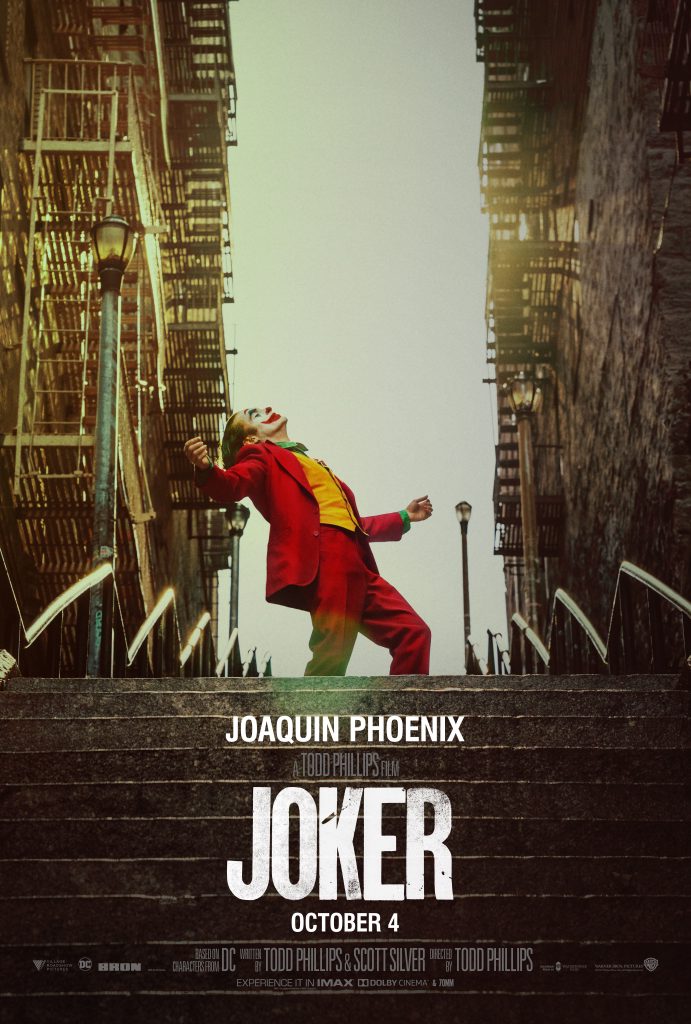
Martin Scorcese was recently in the news for looking down on some of Disney’s Marvel films, discussing his inability to become fully invested in them. But it’s especially interesting how Hangover director Todd Philips draws heavily from the kind of gritty thrillers Scorcese specialized in for Joker, his origin story and ode to comics’ clown prince of crime. Before we’re introduced to our lead, the rent-a-clown Arthur Fleck (Joaquin Phoenix), the Warner Bros. logo appears in its throwback stylized incarnation with the classic red backdrop in a nice touch, leading into a film that tales influence from works like Falling Down and Martin’s Taxi Driver.
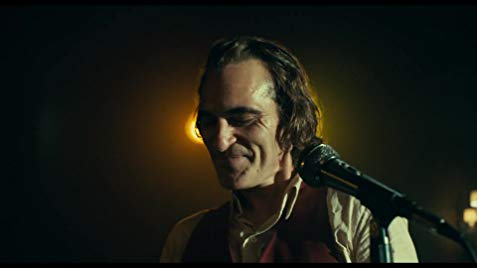
Times are hard in 1981 Gotham City- the economy is in the dumps, there’s a garbage strike and hoodlums run rampant (more than ever here, it’s a clear allegory for 70s and early 80s New York). Living in a cheap apartment with his mother Penny (Frances Conroy), Fleck has dreams of becoming a famous comedian, fantasizing of meeting his idol, the Carson-style host Murray Franklin (played by Robert DeNiro, in another interesting Scorcese connection). Unfortunately, he’s restrained by severe mental illness, violent and nihilistic thoughts, and a condition that causes him to impulsively breakout into spastic laughter regardless of his mood.

Before Arthur tries the stand-up circuit, there are two notable subplots- one involving his possible connection to resident billionaire Thomas Wayne, and his extremely uncomfortable pursuit of his neighbor Sophie (Zazie Beetz). Wayne, portrayed by Brett Cullen, is nowhere as charitable as he’s been in other Batman stories. Here he’s a snooty autocrat who’s running for mayor of Gotham, and the suffering townspeople aren’t too happy about it. When Arthur takes out his frustrations on a gang of rich bullies in the subway using a gun he’s started carrying around, clown masks (as opposed to Guy Fawkes masks) become the choice of disenfranchised anti-Wayne protests.
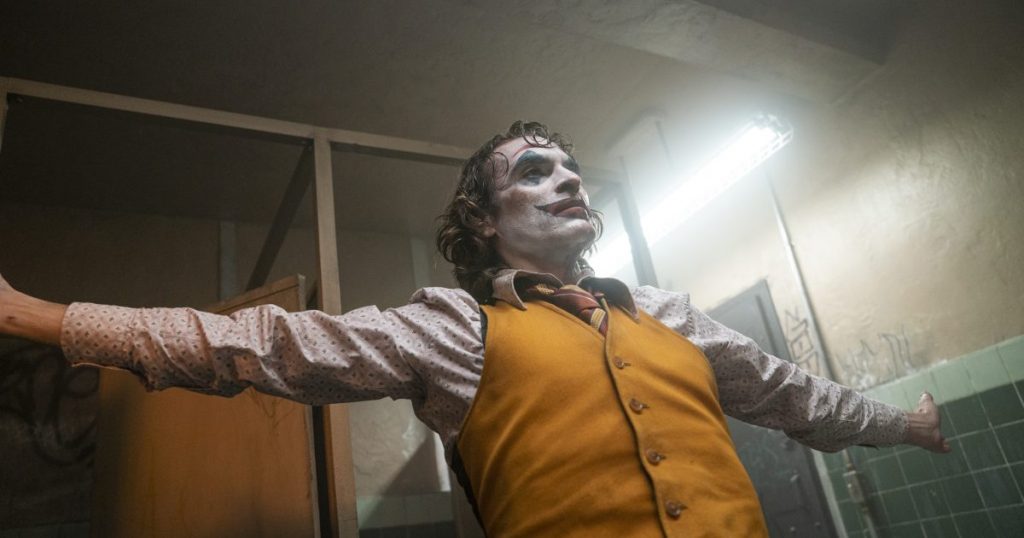
All of this comes together to what seems like a very personal project for Mr. Phillips. Maybe he relates to the frustrated showman aspect of Fleck, albeit portrayed in an over-the-top manner as the protagonist’s sanity erodes even further and his soul gradually rots. Phoenix’s performance is top-notch in terms of unsettling believability and while simultaneously making Fleck appropriately neurotic and creepy, still projecting some strong charisma (particularly when he performs some weird, contorted dance sequences).
That’s what’s required when you’re working within the framing of such an unsympathetic character. Making a movie about Joker without the Batman to fight him is a tricky job- Bruce Wayne is just a boy here, played by Dante Pereira-Olson. So if you’re the lead in a story and you’re up to no good, the very least you can do is be interesting, and Joaquin is certainly that here.
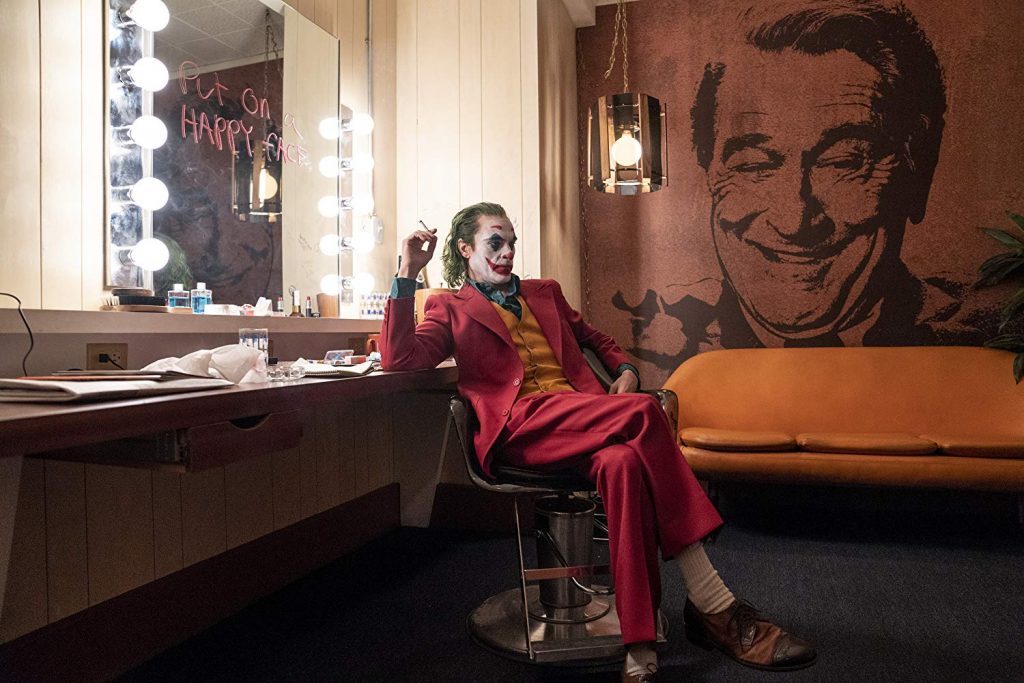
In some respects, Philip’s Joker film does almost act like the stereotype of how some teenage Joker lovers can come off, wanting to shock audiences and position one’s self as an underdog or a misfit. And it’s also why the decision to keep it vague as to whether or not this is the Joker who will eventually battle the World’s Greatest Detective is noteworthy. Because that means this person eventually evolves into an effective con artist, as we’ve seen with Harley Quinn time and time again.
Maybe you could argue he’s conning the people in the city who are in Clown Solidarity, but then again there seems to be real legit anger behind the populist messaging here that’s meant to be taken very seriously (unlike Ready Or Not, which was a bit more lighthearted in its class satire, bloody as that film was).
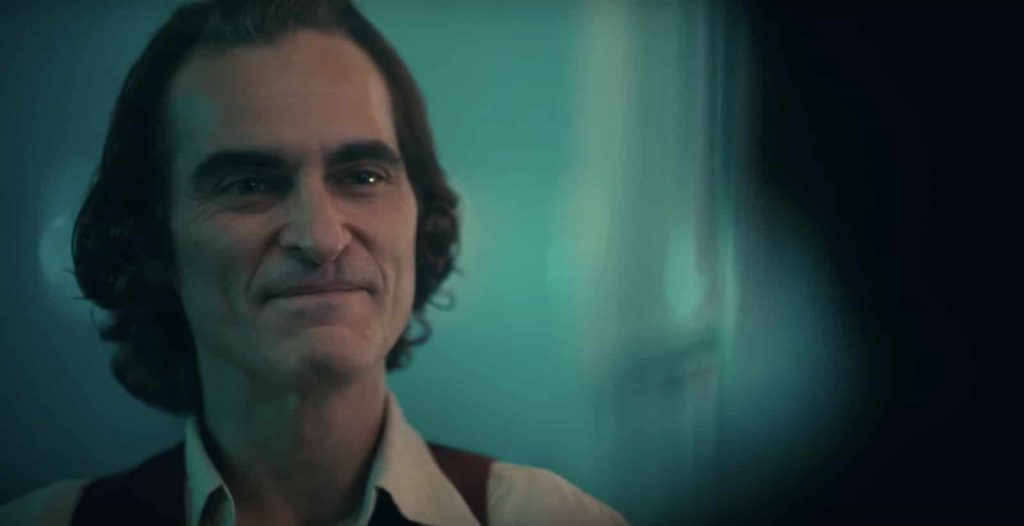
I found a good article by Anthony Gramuglia analyzing and asking why some fans seem to idolize Joker, or at least find him so fascinating. To Philips I suppose he symbolizes anarchy and rebellion, which is part of the atmosphere he’s shooting for amidst the class debates, but I also see its point where his evil is partially driven by an extreme vanity.
Personally, my favorite live-action incarnation was Heath Ledger’s from The Dark Knight. He’s an entertaining and intimidating presence who wreaks a ton of havoc and gathers a body count, as does Phoenix’s. Nevertheless, Ledger’s Joker at the end of the day is a fool. In the 2008 Nolan film, Batman repeatedly foils the worst possible outcomes of his evil plans, and as he hauls Joker off to jail he helps to debunk his “everyone’s as bad as me deep down” argument.
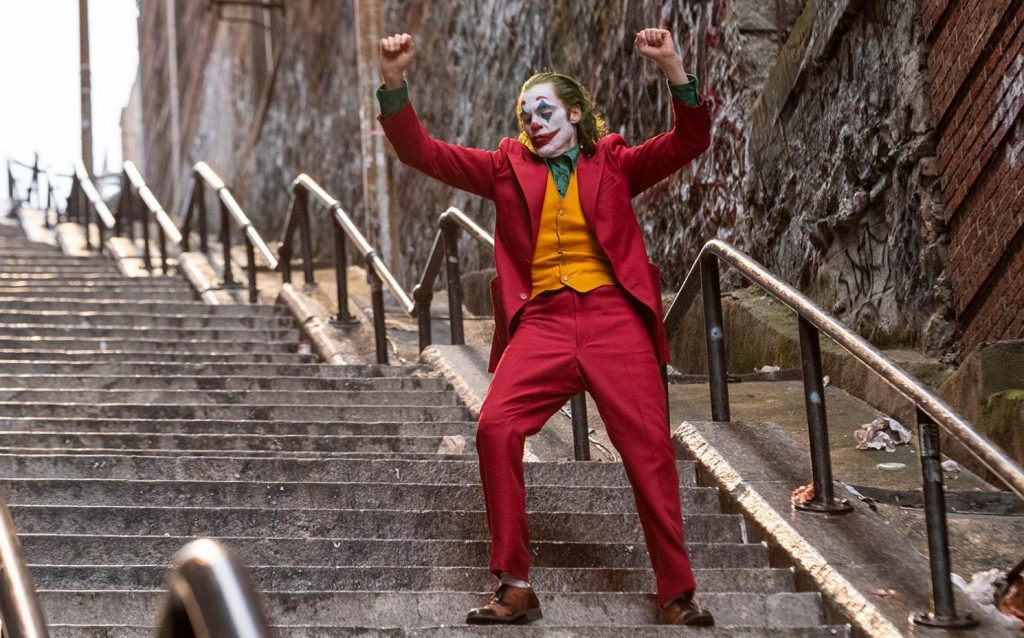
Ultimately, Joker is a solid gritty thriller that can be a bit too concerned at points with being profound. Some of the messaging seems a bit muddled here and there- it’s hard to get with Joker’s frustration at the lack of civility in society when he’s been the least civil person in Gotham for weeks- so sometimes it comes off like it wants to be seen as deeper than it truly is. As compelling as Fleck is, there are good reasons as to why Joker’s not leading man material.
But much of it is extremely well-executed, terrifying and suspenseful, and a lot of that is thanks to some eye-popping cinematography from Lawrence Sher and Phoenix being so mesmerizing. Especially for the last half-hour or so, which is incredibly hard to forget once you see it.
Still, if you’re just looking for a good “urban horror” movie, it should easily suit your needs. Just keep it far, far away from your young kids who love LEGO Batman, because this ain’t the same thing, chief. If you’ve done the Laffy Taffy down to your local theatre to see it, head by to @Official_FAN on Twitter and let us know your thoughts!
